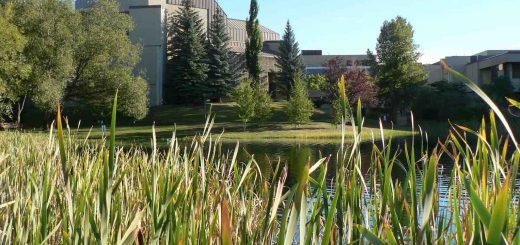Clubs need more than members to prosper
Leadership, friendship and commitment are key
Will Conner
Contributor
Participating in a student club can be a big part of the post-secondary experience, if the club survives.
SAMRU clubs hit a new record last year, totalling 59 and growing this year as ratifications pour in. Having clubs stick around from one year to the next is more of a challenge.
Club N3rd is one of the bigger clubs on campus, with 400 declared members, and it has successfully survived into its second year.
“What I wanted to do is strengthen the gaming and geek community in Calgary, and I wanted to make friends here in school that share the same interests as me,” said Dara Defreitas, president and founder of Club N3rd.
“My plan was to unite and expand the geek world. Geek is chic,” she said, commenting on the spin-off clubs like the Board Game and My Little Pony clubs. “I think it’s awesome.”
Club executives tend to change annually, and club can fall apart if the leadership team looses interest or isn’t prepared for the effort it takes to continue on.
The key to a successful club is a committed, elected executive team. It’s important that members buy in to their leaders and the executives are organized and committed, said Amber Mader, the clubs coordinator for the Students’ Association of Mount Royal University.
Tom Smith, the president of MRU’s improv club Improvination said it requires a lot of effort and commitment to keep the club going.
“It’s surprising how much preparation is needed to run a club (that’s supposed to be) spontaneous,” Smith said. “The amount of effort and planning the executive has to put into setting up improv is a little crazy, you’d think it would require no work to be spontaneous and silly.”
Mader is focusing this year on helping executives successfully transition between teams. Last year’s clubs survey revealed that many clubs were having problems with procedures and financials, only really finding their feet close to the end of the year.
Planning and documentation are critical to survival. “Every executive should want to have their club survive by the time they leave here,” Mader said. “(Being able to say), ‘my club is still there, and I started that club’ is an awesome feeling and I know I’d want that.”
Mader said students seem more enthused or energized about clubs this year. “Student engagement is pulsating more. I can feel it,” she said.
There are many academic clubs at MRU, and most programs have one to represent the interests of their students, though they are run through SAMRU and not the university.
Being attached to a faculty makes it easier to survive from term to term than others, though all clubs face the same hurdles.
Despite the challenges, Mader pointed out that clubs are a great way to meet other students in the same program, find study buddies, network, and expand on specific skills that a student will need for a successful career.
“You go to school and you learn, but if you’re not involved in extracurricular activities you’re losing this huge part of university life. That is what you’ll remember more than anything else, more than whatever you’re taking in your classes, it’s the friends you made and the experiences you had,” Mader said.
“It’s crazy that I spent six years as a student here and I never went up above the food court. I wish I could go back in time, it would have been a lot more fun.”




